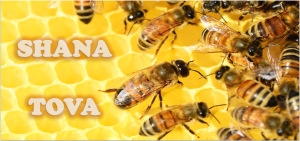Shana Tova! Welcome to the first month (Tishrei) of 5780!
The month of Tishrei is packed full of festivals and we often find ourselves focusing solely on the Days of Awe at the expense of Sukkot that follows (on the 15th of Tishrei). We can learn an important idea from Sukkot that can inform the way we celebrate all festivals, and is equally relevant to the work we do in our communities.
One of the names of the festival of Sukkot is Zman Simchateinu (the time of our happiness). While this is likely to be connected to Sukkot being the harvest festival, Simcha is also found in connection with other festivals, and there is a general mitzvah to be happy on Yom Tov (the three pilgrimage festivals of Sukkot, Pesach, and Shavuot) which we learn from the festival of Sukkot (Devarim 16:14).
 There is a deeper significance to the word Simcha. It is not a word found often in the Bible, (only once in each of the first four books!) yet it is found twelve times in the book of Devarim, mostly in the context of communal commandments, where the mitzvah involves a communal gathering to celebrate, often in Jerusalem. Examples include pilgrimage on festivals, service in the Temple, and the bringing of the first fruits.
There is a deeper significance to the word Simcha. It is not a word found often in the Bible, (only once in each of the first four books!) yet it is found twelve times in the book of Devarim, mostly in the context of communal commandments, where the mitzvah involves a communal gathering to celebrate, often in Jerusalem. Examples include pilgrimage on festivals, service in the Temple, and the bringing of the first fruits.
Simcha is usually translated as joy, rejoicing, or happiness. These are all personal emotions. They belong to the individual and are experienced alone. Simcha however, is not a private emotion. It means happiness shared, and is a social state, experienced as a “we,” not as an “I.” We cannot experience simcha alone.
We often hear the critique in wider society that this is the generation of individualism. MIT professor Sherry Turkle calls our age of social media and online (rather than face-to-face) friendships, “alone together.”[1] Harvard sociologist Robert Putnam referred to this phenomenon as “bowling alone[2]” to describe the loss of social capital in modern times. He found that more people than ever were going ten-pin bowling, but fewer than ever were joining bowling teams. The term captures the individualism of our society and the often resulting loneliness.
However, ten years after Putnam published Bowling Alone he changed his mind slightly. He argued that in fact social capital was alive and well in the United States, but only in specific locations in society[3]. Religious communities he found still bring people together in shared belonging and mutual responsibility. Regular attendance at a house of worship or religious community center turns out to be the best predictor of altruism and empathy (interestingly he found this was independent of faith – atheist members of religious communities were equally more likely to volunteer in a soup kitchen than a believer who prays alone).The culture surrounding religion creates community based on the value of altruism.
This Tishrei, let’s take a tutorial from the festivals we celebrate to build strong and vibrant communities on a foundation of the simcha – shared joy!
Resources
The sukkah itself is a metaphor for an open and broad community. Check out these resources to help make your sukkah a lace of community building and shared joy.
- Josh Traulsen: From Our House – Sukkot Resources (Moishe House)
- Noam Zion: Sukkot – A Guide for Understanding and Celebrating (The Hartman Institute)
- Shira Burns: Sukkot and Simchat Torah: Resources and Reflections (Keshet)
- Sukkot (Pardes)
- SHELTER a resource for Sukkot (Limmud Chavruta Project)
For previous resources for the festivals of the month of Tishrei (Rosh Hashanah, Yom Kippur, Sukkot and Simchat Torah) check out Tishrei resources on our website.
For a wider look at articles in he world of Jewish education take a look at Jeducation World.
